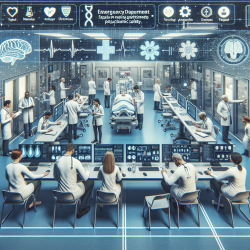In an era where digital solutions are increasingly becoming integral to healthcare, the article "From Research to Practice: Ten Lessons in Delivering Digital Mental Health Services" provides invaluable insights. As practitioners, understanding and implementing these lessons can significantly enhance the effectiveness and reach of online therapy services. Here, we distill the ten key lessons from the research to help you improve your practice and encourage further exploration into digital mental health services.
Lesson 1: Improving Access to Care
Digital Mental Health Services (DMHS) have the potential to reach individuals who might not otherwise seek care. The MindSpot Clinic and the Online Therapy Unit (OTU) have shown that a significant proportion of users had not previously engaged with mental health services. This underscores the importance of DMHS in bridging the gap in mental health care access.
Lesson 2: Beyond Treatment
DMHS are not just about delivering treatment. They also provide essential services such as assessment, information, and referrals. Many users seek confidential assessments and recommendations, highlighting the need for DMHS to offer a comprehensive suite of services.
Lesson 3: Serving a Diverse Population
DMHS can serve a broad cross-section of the population, including underserved groups such as indigenous communities, low-income individuals, and those in rural areas. This inclusivity is crucial for addressing mental health disparities.
Lesson 4: Specialized Therapist Skills
Delivering effective DMHS requires therapists to acquire specialized skills. This includes proficiency in using clinical software platforms and engaging with patients via digital communication. Continuous training and supervision are essential for maintaining high-quality care.
Lesson 5: Structured Clinical Processes
DMHS necessitate structured clinical processes to ensure quality and consistency. This includes the use of standardized interventions and outcome measures, which are integral to delivering personalized yet scalable care.
Lesson 6: Specialized Operational Systems
Operating DMHS involves unique challenges that require specialized systems and skills. This includes robust procedures for managing safety risks, expertise in telehealth, and strong organizational governance.
Lesson 7: Evolution and Adaptability
DMHS must continuously evolve to meet changing consumer expectations, technological advancements, and policy priorities. This adaptability is crucial for sustaining and improving service delivery.
Lesson 8: Integration with Health Systems
Integrating DMHS within complex health systems is challenging but essential. Building strong relationships with stakeholders and publishing outcome data can help define the role of DMHS and secure their place within broader healthcare frameworks.
Lesson 9: Influencing Mental Health Policy
DMHS have the potential to influence mental health policy by providing data-driven insights. This can help shape long-term planning and funding strategies, ultimately improving the mental health system.
Lesson 10: Complementary, Not a Panacea
While DMHS offer significant benefits, they are not a one-size-fits-all solution. They should complement existing services and be integrated thoughtfully to provide comprehensive mental health care.
By implementing these lessons, practitioners can enhance their skills and contribute to the ongoing evolution of digital mental health services. To read the original research paper, please follow this link: From Research to Practice: Ten Lessons in Delivering Digital Mental Health Services.










